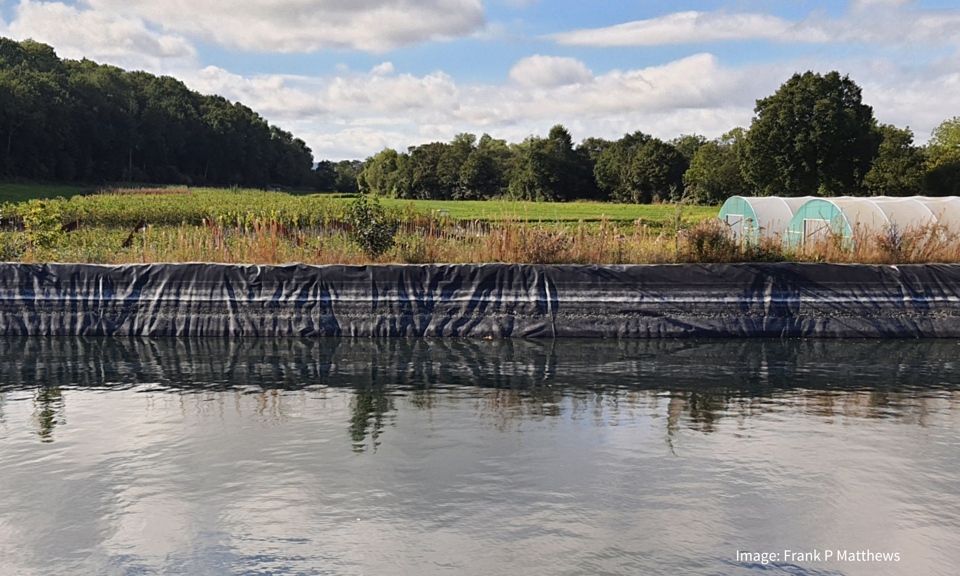Horticultural Trades Association urges action on water management grants to increase resilience to droughts

To align with this week’s Water Saving Week and following last month’s announcement that South West Water has extended its hosepipe ban to an additional 390,000 homes in response to concerns over water shortages, the Horticultural Trades Association (HTA) is urging action on water management grants to increase the industry’s resilience to droughts.
The HTA represents its members on the National Drought Group, which met last month to discuss the urgent need to focus on preserving water resources now, to reduce the risk of drought measures in the future. The group comprises senior decision-makers from the Environment Agency, the government, the Met Office, water companies, and key farming and environmental groups.
A very dry February, followed by an exceptionally wet March and unsettled April, highlight that businesses cannot rely solely on the weather and should focus on preserving water to prevent future drought measures. Whilst much of England is in a better position than last year and reservoir capacity across the UK was at 94% as of the beginning of April, East Anglia, Devon, and Cornwall remain in drought and face temporary use bans. The National Drought Group is preparing for the worst-case scenario of another hot, dry summer and is urging water companies and individuals to reduce leakage, decrease water consumption and find new ways of being resilient to drought.
On 4 April, the government published their ‘Plan for Water’, which sets out measures to increase drought resilience and ease water supply pressures. It aims to take a systematic, local, catchment-based approach, using nature-based solutions and infrastructure investment. This is welcomed by the horticultural industry, which relies on water to flourish. As such, we expect water companies to continue with public information campaigns encouraging the public to save water in the coming months, and we will work to ensure that any messaging relating to the responsible use of water in gardening does not adversely affect participation in gardening. The HTA has also encouraged horticultural businesses to reduce their reliance on mains water through the use of rainwater capture technology. However, whilst the Plan for Water is a step in the right direction, the HTA urges sufficient support for all members without restrictions holding them back from accessing funding to increase their resilience.
The current Water Management Grants from Defra are open to horticultural businesses growing or planning to grow irrigated food crops, ornamentals, or forestry nurseries. However, the investment minimum needs to be lowered for many members of the HTA to make it viable. These members want to implement reservoirs for self-sufficiency but don't need them at the current specified scale and cannot afford the initial outlay. If the necessary scale and investment were reduced, more businesses could reduce their reliance on the national water supply. The HTA is requesting that water companies and the Environment Agency provide or support a funding program for horticultural businesses to enhance rainwater capture, construct reservoirs, recapture run-off, and use grey water. This would help reduce capital costs for these businesses.
The industry needs to grow sustainably to meet the government's tree planting targets, continue to contribute to human health and wellbeing, mitigate against climate change, and improve local biodiversity. Additionally, the Environmental Improvement Plan released in February set out the government's aim to increase the percentage of water storage used by the agriculture and horticulture sectors by 66% by 2050. The HTA emphasises the importance of consistently recognising horticulture as a separate industry from agriculture, as water use and outputs vary significantly between the two. This recognition of the horticulture industry will allow for better support and differentiation of funding specific to horticulture.
In the event of sustained drought periods, before the necessary funding for investment is made available, the horticultural industry will continue to increase its use of rainwater capture. However, it is imperative that water companies and the Environment Agency work together with the garden centre sector to encourage consumers to reduce water use in the garden and increase rainwater capture/water reuse at home. The combined area of the UK's domestic gardens is roughly the same as the whole of Somerset, highlighting the necessity to educate domestic gardeners on their role in protecting water security.
HTA Members can access advice, resources and guidance on the ongoing situation and improving resilience here: https://hta.org.uk/news-events-current-issues/sustainability/water
